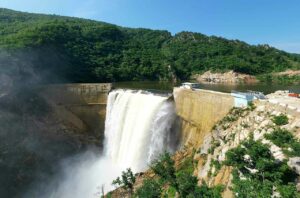FEATURED NEWS
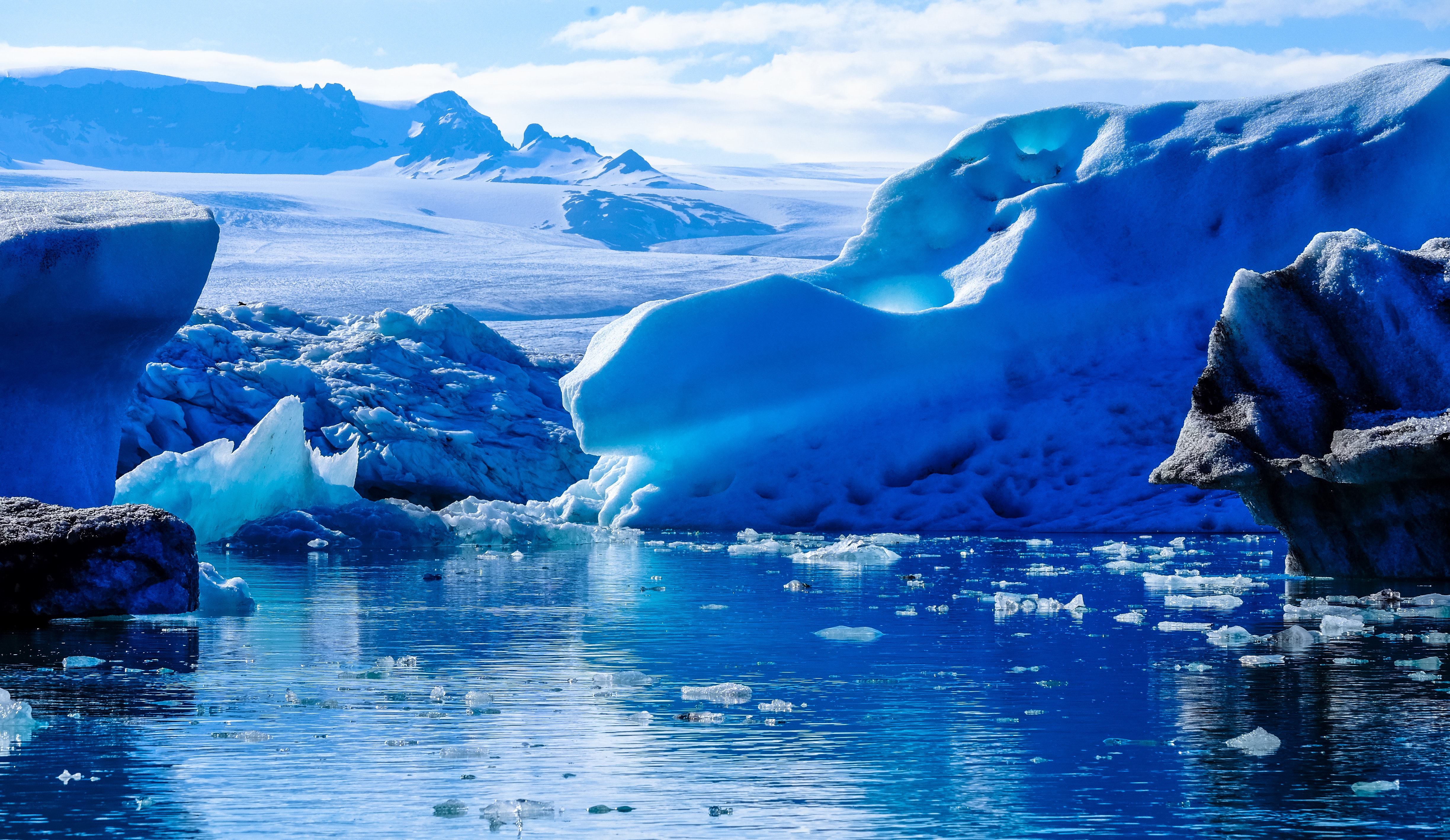 The Security Implications of the Warming Oceans: IPCC Special Report on the Ocean and Cryosphere
The Security Implications of the Warming Oceans: IPCC Special Report on the Ocean and Cryosphere
For the past three years scientists have been collaborating on a special report that analyzes the impact of climate change on the ocean and the cryosphere, the earth’s frozen regions such as glaciers and regions covered in permafrost. The report confirms that the ocean is warming, increasing the potential for deadly marine heatwaves which will devastate coral reefs and kelp forests. Warming oceans also fundamentally change coastal ecosystems as fish migrate northward in search of cooler water. As fish migration patterns change, coastal communities risk losing vital food resources, harming food and economic security.
Melting ice is also contributing to global water stress as snowmelt reserves in the Hindu Kush Himalaya, the Andes, and the Artic retreat. These dwindling freshwater resources – which are vital for many cities – increase geopolitical tensions between countries which rely on them for their water security, as seen in river disputes between India and China.
Despite these dire warnings, both the IPCC report and a report from the High Level Panel for a Sustainable Ocean Economy support that ocean based action has to be part of an effective mitigation strategy. Oceans could be used to reduce global emissions by up to 21 percent through ocean based renewable energy such as tidal energy, restoration of coastal ecosystems, improvements in aquaculture, and fisheries management. However, investment in these techniques is far below the levels needed to enact this change.
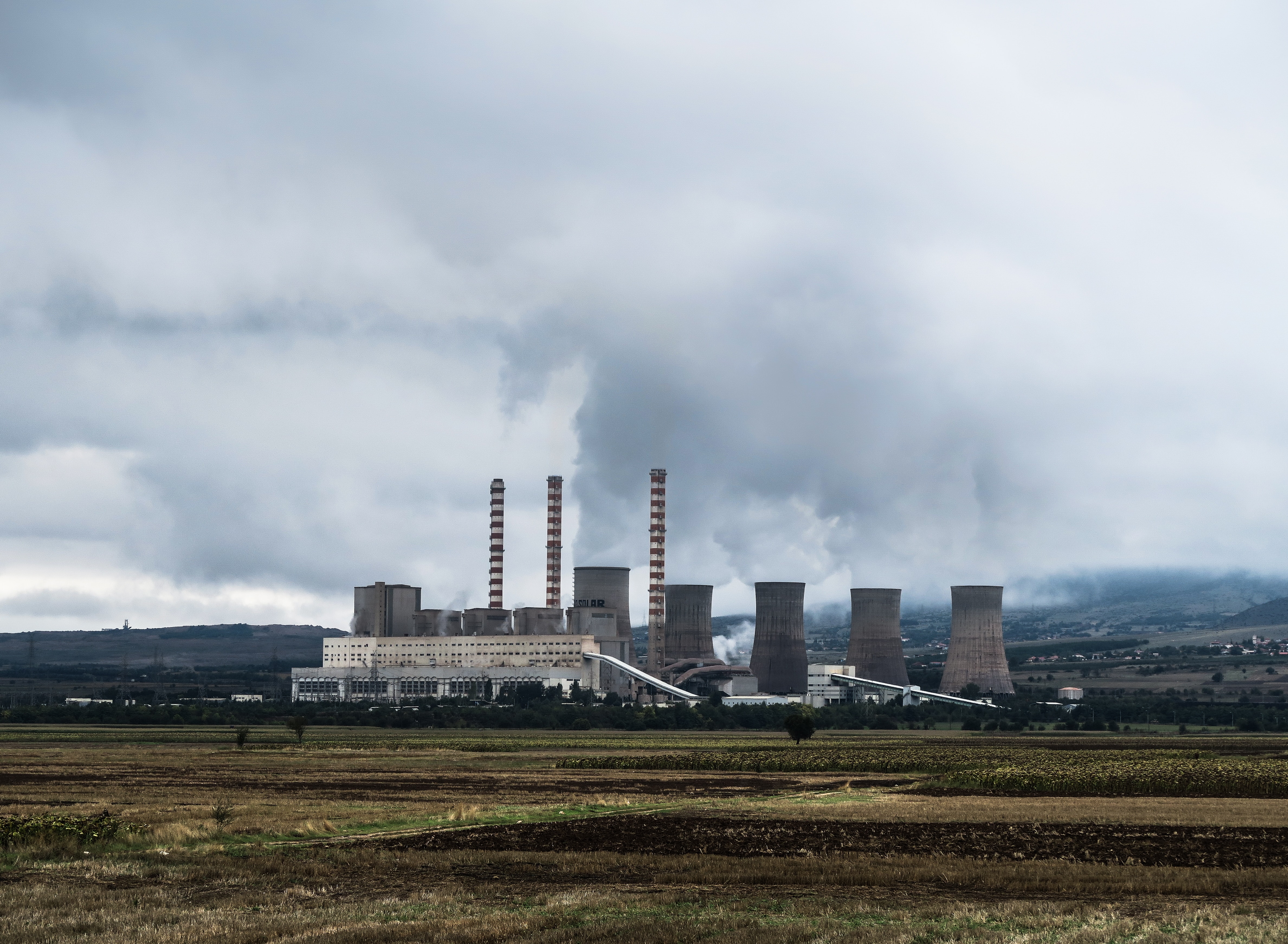 The Geopolitics of Nuclear Waste Management in Asia
The Geopolitics of Nuclear Waste Management in Asia
What happens when space for nuclear waste storage runs out? Since the Fukushima nuclear power plant meltdown in 2011, the Tokyo Electric Power Company (TEPCO) has stored nearly a million tons of radioactive waste water that was previously used to cool the reactors. TEPCO has recently announced that by 2022, they will run out of storage space and are considering using the Pacific Ocean to dilute the toxic waste. The local fishing communities, where WTO bans on seafood exports have only recently been removed due to initial contamination in 2011, fear that nuclear waste dumping may endanger fish populations, degrade marine ecosystems, and negatively impact their food and economic security. Similarly, South Korea has focused its concern on how nuclear waste could impact the global marine environment, including fishing in its own economic exclusive zone. The Japanese government is currently awaiting an expert report on potential human impacts.
Whatever the decision, the problem of storing nuclear waste is not confined to just Japan nor is it a new problem. Japan’s storage woes highlight the interconnection between nuclear waste storage and the environment, and the economic, environmental, and food security implications of this power source.
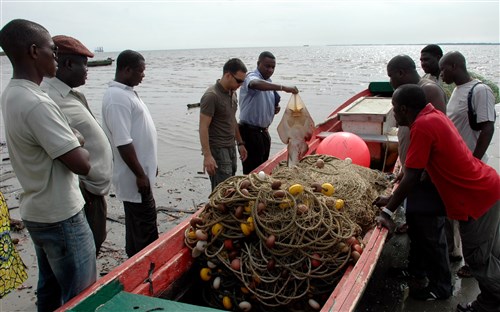 The Fight Against Illegal, Unreported, and Unregulated (IUU) Fishing in Liberia
The Fight Against Illegal, Unreported, and Unregulated (IUU) Fishing in Liberia
With the longest coastline in West Africa and rich fisheries, Liberia faces a constant battle against IUU fishing. Vessels from Europe and Asia – with China makes up the largest proportion – continue to operate with impunity, destroying local fisheries and marine ecosystems. Fishing is vital to Liberia’s economy, with 33,000 people directly employed in its artisanal fishing industry. For these fisherfolk and their families, fishing is critical to their food and economic security. If no collective action is taken, fisheries experts predict that fish stocks will collapse.
In response, the Liberian government has taken action. In 2017 Liberian coastguard partnered with the conservation organization Sea Shepard to improve its patrolling and monitoring capabilities. Since then Liberia has become a regional leader in combatting IUU fishing, more than doubling its assert rate and recovering at least one million dollars in fines. Last week, Liberia hosted the West African Task Force Meeting of the Fisheries Committee for West Central Gulf of Guinea (FCWC) which sought to finalize a coordination mechanism between its member states (Liberia, Côte d’Ivoire, Ghana, Togo, Benin and Nigeria). This is vital as IUU vessels often flee from coastguard ships into another countries exclusive economic zone, limiting the ability of coastal nations to seize such vessels.
Despite this success, increasing patrols and improving enforcement capacity is only part of the solution, and a lack of transparency continues to plague the fishing industry. The FCWC’s plan to establish a Regional Record for fishing vessels is a welcome starting point. However, putting an end to IUU fishing subsidies and improving transparency throughout the fishing industry through traceability programs is also critical if Liberia is to ensure the future of its fisheries.
IN CASE YOU MISSED IT
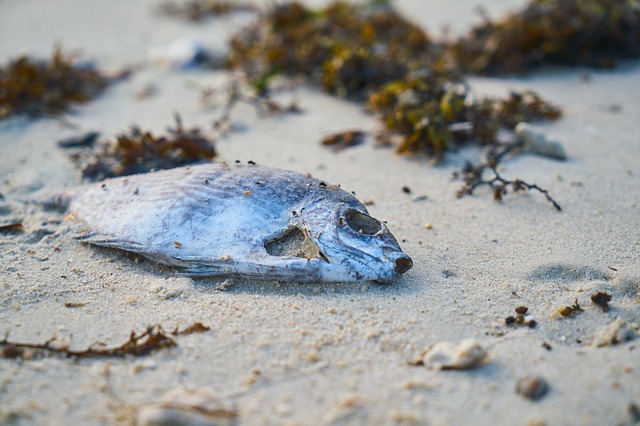 New Marine Heatwave in the Pacific
New Marine Heatwave in the Pacific
In June 2019, NOAA announced that similar conditions to The Blob, a marine heat wave in 2014 which devastated fisheries and marine life, had been spotted in the Pacific Ocean. While the impacts of the Blob – part two remain unclear, another marine heat wave could catalyze algae blooms, devastate fisheries, and negatively impact coastal economies and livelihoods. Advance notice for these warming events – such as the California Current Marine Heat Wave Tracker – is critical if coastal communities are to successfully mitigate their impact.
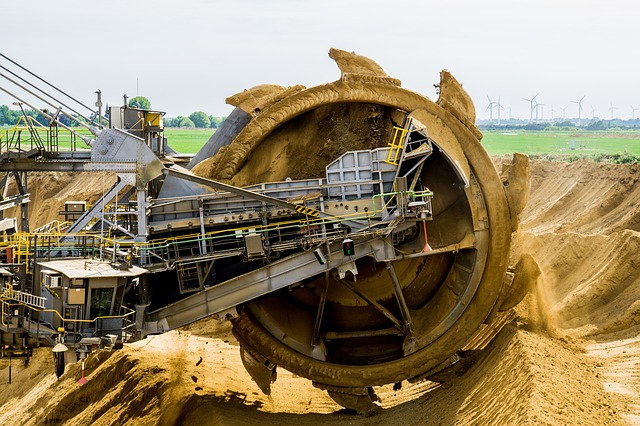 Concerns over Coastal Mining in Namibia
Concerns over Coastal Mining in Namibia
Protests have broken out in Namibia as fishers call for a moratorium on offshore mining prospecting after the Namibian Marine Phosphate Ltd received an environmental clearance. Fishers worry that the mining process will negatively impact fishing populations and in the long term degrade marine ecosystems. This view is has been supported by trade unions such as the National Union of Namibian Workers, who argue that such permits value profits over fishing sustainability, which is a vital source of economic and food security for many Namibian’s.
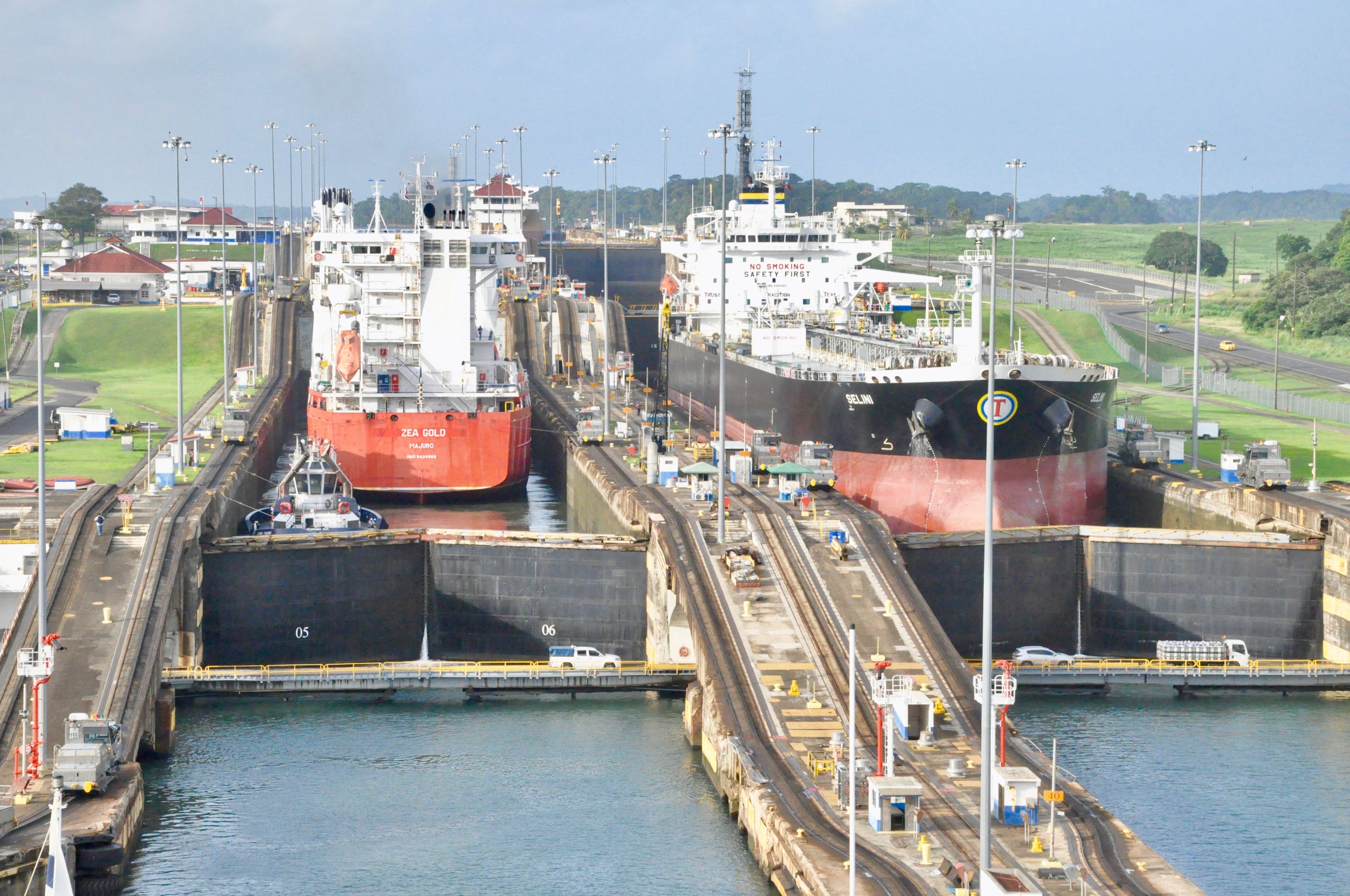 Climate Change and the Panama Canal
Climate Change and the Panama Canal
The Panama Canal is one of the most important pieces of infrastructure in the world, significantly reducing the shipping transportation times between the Pacific Ocean and the Atlantic Ocean. However, climate change is leading to increasingly erratic rainfall patterns in Panama making the regions that the canal pass through more susceptible to drought. When drought hits, water levels in Lake Gatun, the central point of the canal, fall. This significantly reduces the Panama Canal’s ship bearing capacity, impacting not only the economic security of Panama, but of all nations which rely on goods shipped through this key waterway. Although the Panama Canal underwent a recent expansion in 2016, Panama will have to have to build a new lake to successfully plan for drought resistance.
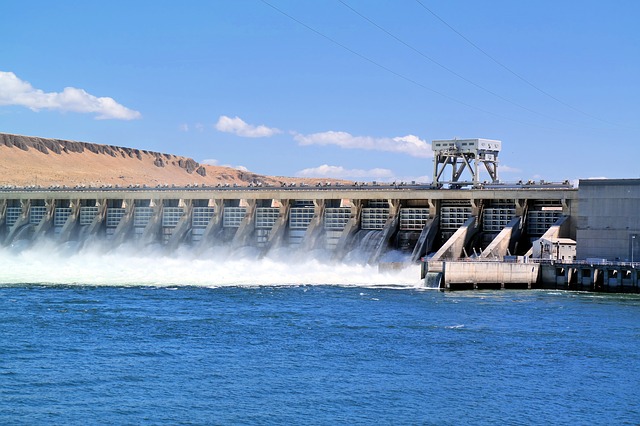 Blue Gold on the Nile: Disagreement between Egypt and Ethiopia over GERD Continues
Blue Gold on the Nile: Disagreement between Egypt and Ethiopia over GERD Continues
Announced in 2011, the Grand Ethiopian Renaissance Dam (GERD) is set to become one of Africa’s largest power generators and play a central role in Ethiopia developing economy. A boon to Ethiopia, the GERD presents a threat to Egypt which lies downstream and relies upon the Nile for its freshwater needs. Negotiations over the amount of water that flows through the dam are delicate, as lower levels are more favorable for power generation but they threaten Egypt’s water security. As of September no clear consensus has been reached. Currently, Egyptian’s strategy is to expand the domain of discussions concerning the GERD through escalated diplomatic maneuvers. Cooperative measures will be crucial to preventing discussions from exacerbating tension to the point of conflict.


